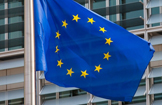
Towards the European Union 2050 carbon neutrality target: the Disclosure and Taxonomy regulations, a revolution in sustainable finance?
The transition to a sustainable economy is undoubtedly the challenge of the century. The European Union is committed to promoting investment in more sustainable activities and bringing more transparency to financial actors to this end.


In the framework of the Sustainable Finance Action Plan, the European Commission recommends in particular:
- to redirect capital flows towards sustainable investments in order to achieve sustainable and inclusive growth,
- integrate sustainability into the management of financial risks related to climate change, resource depletion, environmental degradation and social issues,
- promote transparency in the publication of information and a long-term vision of economic and financial activities.
With the growing success of ESG criteria in investment decisions and the emergence of a myriad of non-regulatory and voluntary standards, there was a need for the legislation to harmonize these standards and criteria in order to protect investors, enhance the comparability of financial products and stimulate healthy competition.
Two European regulations mark a major milestone in this Sustainable Finance Action Plan and provide further details on the application and assessment of these ESG criteria while imposing sustainability transparency on all players in the financial sector: the first concerns the publication of sustainability information in the financial services sector (the "Disclosure Regulation”) and the second the establishment of a framework to promote sustainable investments (the “Green Taxonomy Regulation").
The objective of these texts is to stimulate competition for the massive investments needed to achieve a green and climate-neutral economy in Europe by 2050. The first concerns the publication of sustainability information in the financial services sector (the "Disclosure Regulation") and the second the establishment of a framework to promote sustainable investments (the "Green Taxonomy Regulation").
***
Under various names (Sustainable Development, Corporate Social Responsibility - CSR, Socially Responsible Investment - SRI, Environmental, Social and Governance criteria - ESG), which will be grouped here under the term of extra-financial criteria, reference is made to a multitude of issues: corporate governance and ethics, human resources performance, environmental impacts and, in general, societal issues such as gender parity.
The development of CSR and ESG policies reflects the growing desire of shareholders and consumers to be better informed. However, today they also represent a real lever for performance and business opportunities, particularly at the international level.
Faced with this craze to gain market share in the ESG investment segment, many private organizations have tried to promote their ESG policies through dedicated funds.
The multiplicity of criteria used to assess whether or not ESG standards were met could ultimately be misleading for the investor.
Thus, a harmonization of the legislation on these criteria seemed necessary.
This is now a reality thanks to the publication of two regulations at the European level: the "Disclosure" regulation and the "Green Taxonomy" regulation, whose ambitions are to help redirect capital flows towards sustainable activities.
These regulations will both apply to all financial market players that manage or market funds in Europe. They include insurance companies, institutions for occupational retirement provision, investment firms and credit institutions that provide investment advice and individual portfolio management, UCITS and AIFM management companies, eligible venture capital managers, social entrepreneurship fund managers.
The Disclosure Regulation will also apply to financial advisers, which includes insurance intermediaries, insurance undertakings, credit institutions, investment firms, AIF managers and UCITS management companies that provide investment advice.
The Disclosure Regulation
The Disclosure regulation was published on November 27, 2019 and will come into force on March 10, 2021.
It imposes transparency obligations with enhanced reporting for financial market players and financial advisers "with regard to the integration of sustainability risks and the consideration of negative sustainability impacts".
Sustainability risk is the risk of an ESG event occurring that could affect the value of an investment.
Negative sustainability impacts are the negative impacts of investment decisions on non-financial criteria.
Thus, professionals will therefore be obliged to publish a certain amount of information on their website or within the framework of pre-contractual information such as for example:
- Policies for the integration of sustainability risks in investment decisions (website);
- Policy of due diligence on negative impacts on sustainability factors (website);
- Clear and reasoned explanation of how a financial product takes into account the main negative impacts on sustainability factors (pre-contractual information).
To date, we are still waiting for the publication of the implementing texts concerning the content and presentation of the disclosed information to be proposed by the European authorities by December 31, 2020 at the latest.
The Green Taxonomy Regulation
A second regulation to encourage sustainable investments was published on June 22, 2020 and came into force on July 12, 2020. It amends Regulation (EU) 2019/2088 on sustainability disclosure in the financial services sector.
Regulation (EU) 2020/852 on the establishment of a framework to promote sustainable investment creates an investment classification system to: "determine whether an economic activity is environmentally sustainable".
The regulation provides that if an activity makes an essential contribution to one of the following objectives without adversely affecting another, it may be declared sustainable:
- climate change mitigation;
- adaptation to climate change;
- sustainable use and protection of water and marine resources;
- transition to a circular economy, including waste prevention and increased use of secondary raw materials;
- pollution prevention and control;
- protection and restoration of biodiversity and ecosystems.
For each of these objectives, the regulation specifies the criteria for assessing whether or not an economic activity makes an "essential contribution" in this area.
In addition, companies required to publish a non-financial statement must now include information "on the manner and extent to which the company's activities are associated with economic activities that can be considered environmentally sustainable" and in particular the percentage of turnover related to these activities.
The regulation thus makes it possible, through criteria harmonized at the European level, to guide investors towards truly sustainable investments.
At the end of 2021, a first set of information on alignment with the taxonomy regulation will be required from financial market players in their pre-contractual documentation and periodic reporting.
During 2022, information on alignment with the taxonomy regulation will be required from companies and financial institutions in their non-financial reporting.
Conclusion
By adopting these regulations as one of the vectors towards climate neutrality by 2050, the European Commission is laying the foundations for a European framework that makes the ESG criteria a cornerstone of the financial system and will help convert the European economy into a greener and more resilient circular system.



